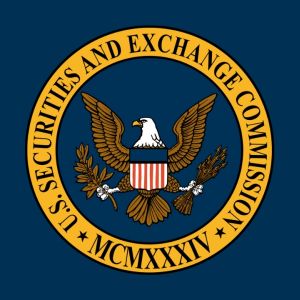The SEC is closing the book on its Biden-era crypto enforcement crusade. On Friday, the agency told a Manhattan appeals court that a resolution in its high-profile lawsuit against Coinbase could be near. But before that happens, the agency needs more time—30 extra days—to respond to the exchange’s legal challenge. The case, filed in 2023, aimed to force Coinbase to follow the same rules as Wall Street stock exchanges and brokerages. Crypto firms fought back, saying traditional finance regulations don’t fit digital assets. Now, under President Trump, the agency is taking a different route. Last month, he ordered all federal agencies, including the SEC, to draft a new regulatory framework for crypto. The agency said in its filing that this directive “could facilitate the potential resolution” of the Coinbase lawsuit. On Thursday, Coinbase reported a surge in revenue and profits in its Q4 earnings report. Investors are betting on a Trump-fueled crypto boom, and the numbers reflect that. Tether is helping Congress draft stablecoin legislation While the SEC slows down, Tether is actively engaging with U.S. lawmakers to shape stablecoin regulations. The company, which controls 60% of the $230 billion stablecoin market, has been a controversial figure in Washington due to its lack of full audits. Tether has always only provided quarterly reports from global accounting company BDO. Stablecoins like USDT are backed by hard assets—in this case, U.S. dollars and Treasury bills. Tether is also one of the largest holders of U.S. government debt, with $114 billion in short-term Treasuries in its reserves. With new stablecoin regulations on the horizon, the company wants a seat at the table. Federal judges are also weighing in. Last month, Judge Katherine Polk Failla gave Coinbase the green light to file an interlocutory appeal. The Second Circuit will now decide whether existing securities laws even apply to crypto assets traded on the platform. In the meantime, Congress is moving fast. Three new stablecoin bills were introduced last week—one from Rep. Bryan Steil, another from Senator Bill Hagerty, and a third from Rep. Maxine Waters. The goal? Get a bill to Trump’s desk by April. Tether’s CEO Paolo Ardoino confirmed that the company is working directly with lawmakers. “We are going to work within the regulatory framework, and we are going to try to advise on every single one of these field proposals to make sure that our voice is heard,” he said. If passed, the new laws would force Tether to undergo full monthly audits from a U.S.-approved accounting firm and maintain 1:1 reserves with assets pre-approved by regulators. But Ardoino made one thing clear: Tether isn’t backing down. “We are not going to just throw in the towel and let Tether die just for the sake of not adapting to U.S. legislation,” he said. “But there is still a lot of uncertainty over what’s actually going to happen, and we want our voice to be heard in the legislative process.” CFTC leadership shake-up as Trump reshapes financial regulators Crypto regulation isn’t just shifting at the SEC. Over at the Commodity Futures Trading Commission (CFTC), Brian Young is stepping in as the agency’s new enforcement director. The announcement came Friday from Acting Chair Caroline Pham, who took over after Trump’s election. “He is a fearless leader that will build an even more impressive enforcement program that will stay true to the CFTC’s mission to protect the American public from fraudsters and scammers,” Pham said in a statement. Young is a former DOJ veteran who ran the CFTC’s whistleblower office before taking the top enforcement job. His appointment is part of Trump’s broader effort to reshape financial oversight in favor of pro-business, pro-crypto policies. At the same time, Brian Quintenz, a former CFTC commissioner and current head of policy at Andreessen Horowitz’s a16z crypto arm, is set to lead the agency. Quintenz served on the CFTC from 2017 to 2021 and has been one of the biggest advocates for clearer crypto regulations. His return signals a policy shift at the CFTC, where crypto-friendly policies are now back in play. In her first major decision, Pham reorganized the CFTC’s enforcement division into two parts: complex frauds and retail fraud, wanting to streamline investigations while focusing on major financial crimes. Cryptopolitan Academy: How to Write a Web3 Resume That Lands Interviews - FREE Cheat Sheet















